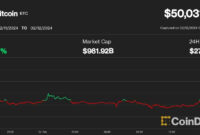What is Bitcoin Cash (BCH) Cryptocurrency ? [Everything U Need to Know]
Bitcoin Cash (BCH) is a cryptocurrency that shares many of the same characteristics as Bitcoin (BTC) yet also integrates a number of changes and features that set it apart. It is considered a ‘fork’ of Bitcoin, although proponents argue that Bitcoin Cash more closely adheres to the original vision of creating a peer-to-peer electronic cash system as laid out in a 2008 white paper written by the founder of the protocol, a person or group going by the pseudonym Satoshi Nakamoto.
Bitcoin Cash is a cryptocurrency that is a fork of Bitcoin. Bitcoin Cash is a spin-off or altcoin that was created in 2017.
In November 2018, Bitcoin Cash split further into two cryptocurrencies: Bitcoin Cash and Bitcoin SV.
Bitcoin Cash comes from Bitcoin. It’s based on the same technology and it’s used the same way, but it’s a unique variation that is separate from the world’s first and most famous cryptocurrency. Here’s what you need to know.
Just like Bitcoin, Bitcoin Cash is:
- Decentralized and not backed by a bank or government
- Processed, validated and logged on a blockchain
- Anonymous
- Finite and therefore impervious to inflation — just like Bitcoin, only 21 million will ever be made
The original Bitcoin blockchain had big problems that involved complicated stuff like signature data, block size and a technology known as segregated witness, all of which is beyond the scope of this article. Basically, Bitcoin outgrew its blockchain, which was made from small blocks that got clogged as Bitcoin’s popularity surged. As more people joined, the system became harder to scale. Both transaction times and transaction costs grew so high that Bitcoin’s chief miners and producers worried about its viability.
They responded by creating what is known as the Hard Fork, a deviation from the original Bitcoin chain. The new chain had bigger blocks that could be scaled to accommodate Bitcoin’s ever-growing user base. Since it sped up processing times and reduced costs enough to let Bitcoin be used just like cash, the only fitting name was Bitcoin Cash.
History
Since its inception, Bitcoin users had maintained a common set of rules for the cryptocurrency. On 21 July 2017, bitcoin miners locked-in a software upgrade referred to as Bitcoin Improvement Proposal (BIP) 91, which meant that the Segregated Witness upgrade would activate at block 477,120. Segwit controversially would enable second layer solutions on bitcoin such as the Lightning Network. A key difference of opinion between Bitcoin users was over the running of nodes. Bitcoin supporters wanted to keep blocks small so that nodes could be operated with less resources, while some large block supporters find it acceptable that (due to large block sizes), nodes might only be run by universities, private companies and nonprofits.[11]
A group of bitcoin activists, developers, and China-based miners were unhappy with Bitcoin’s proposed SegWit improvement plans meant to increase bitcoin’s capacity and pushed forward alternative plans which would increase the block size limit to eight megabytes through a hard fork. Supporters of a block size increase were more committed to an on-chain medium of exchange function.
How Does Bitcoin Cash Work?
Bitcoin Cash is settled using a larger block size (which is 4-8 times larger than BTC, depending on the use of Segregated Witness) to process transactions more quickly.
These transactions are quick enough that you could make a grab-and-go retail purchase with BCH (like a cup of coffee), but if you were making a large purchase such as a car or a house, you could opt for a slower, more secure cryptocurrency like BTC.
BCH and BTC, therefore, fulfill different roles. Not every cryptocurrency is a store of value, and not every cryptocurrency needs to process data quickly to function like a credit card transaction. It makes sense to use different tools for different tasks — much like using a credit card for restaurant dining and a bank transfer to buy a house.
Ultimately, BCH is faster and features lower processing fees than BTC, but is still used less frequently as everyday cryptocurrency payments have yet to be widely adopted. Over time, many believe that greater awareness and complementary technological improvements and innovations will pave the way for BCH to serve as a leader in cryptocurrency payments.
How Much Is Bitcoin Cash Worth?
Around Christmas 2020, it was trading under $300. As of March 25, Bitcoin Cash is trading around $480, much less than the $51,000 or so you’d pay for a single Bitcoin. When it comes to value and price, however, the twin cryptocurrencies do have one thing in common — extreme volatility. In early May, it was up to over $1,500, but as of July 19, it was down to around $418. That, however, is nothing compared to 2017-18, when Bitcoin Cash went from well over $1,000 to well under $100 — apparently trying to make every stop between — and then back again in about a year.
Is Bitcoin Cash a Good Investment?
If you can stomach the roller-coaster volatility of Bitcoin, if you can keep up with its complex and always-evolving technology and you’re OK with the fact that it’s not backed by any institution that you recognize, then you could certainly make an argument for Bitcoin Cash. Like Bitcoin itself, Bitcoin Cash offers the potential for otherworldly profits, but also like Bitcoin, high risks, big bubbles and crazy price swings are part of the package.
More to Know About BitCoin Cash [BCH]
The original Bitcoin blockchain had big problems that involved complicated stuff like signature data, block size and a technology known as segregated witness, all of which is beyond the scope of this article. Basically, Bitcoin outgrew its blockchain, which was made from small blocks that got clogged as Bitcoin’s popularity surged. As more people joined, the system became harder to scale. Both transaction times and transaction costs grew so high that Bitcoin’s chief miners and producers worried about its viability.


